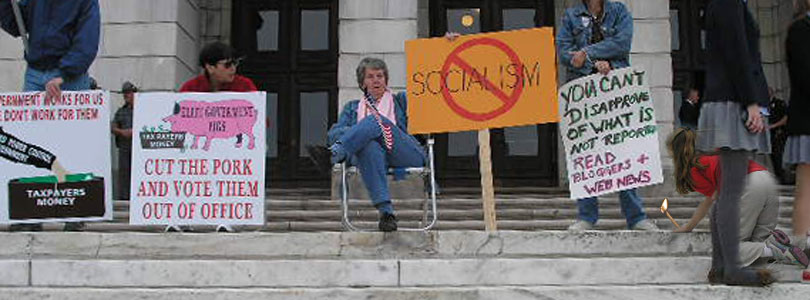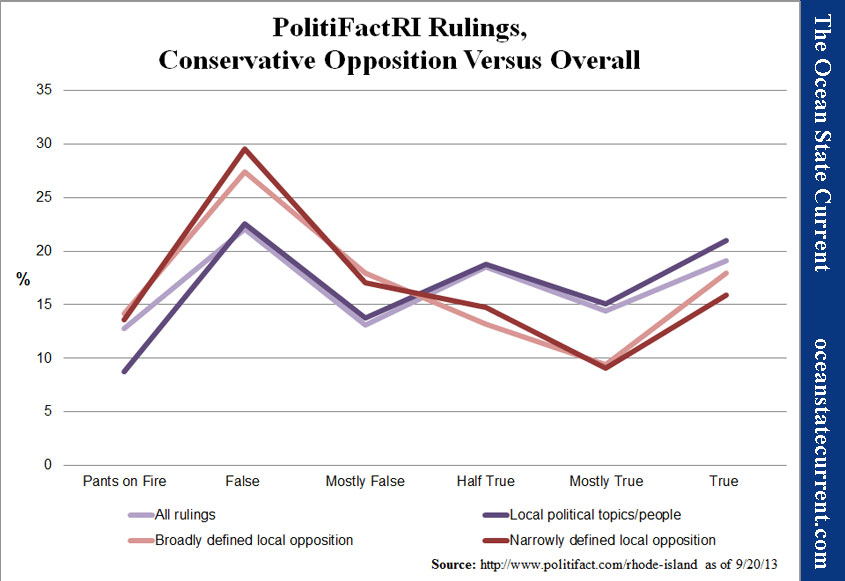Rhode Island Is Losing for Lack of Stories
As I put together my monthly post on Rhode Island’s employment situation, which shows a precipitous drop following the last legislative session, news came via Twitter that declining ad and circulation revenue have brought about another autumn culling at the Providence Journal, which will seek employee buyouts, followed by layoffs. The two subjects might be related in a more fundamental way than the direct inability of people without money to buy newspapers.
Yes, Rhode Island’s economy slipped from the cliff with the larger forces of the financial crisis. Yes, the Providence Journal’s woes are part of a larger shift in media dynamics. There are, however, states that are doing pretty well and news organizations that are weathering the technology revolution.
The problem in Rhode Island is that there appears to be no hope of substantive change, and a large part of the reason there appears to be no hope is that there appears to be no conflict. Who are the sides when Democrats argue with each other? Who’s the hero when the bureaucracy, in the form of the Ethics Commission, imposes some relatively minor fine on a politician? In how many government-employee gotcha stories will the public take an interest if nothing ever comes of them?
Sure politicians battle for seats and leverage, but when Angel Taveras got a look at Providence’s books, he had no motivation to attach a stain to former mayor David Cicilline, so he didn’t. The budgetary “category 5 hurricane” that he found was apparently a simple force of nature.
In short, there’s no competition, and competition — with the guarantee that somebody’s got incentive to force accountability — fortifies both hope and interest. Here’s where it’s difficult to have sympathy for the mainstream news in the Ocean State, which greets rising opposition with either apathy or skepticism. Either there is a near-explicit impression of looking away or a palpable indication of outright opposition.
By way of a current example that’s familiar to me: The RI Center for Freedom & Prosperity is now two years in to building the organization, with some very real successes. Have there been any Sunday profile pieces in the Providence Journal? Has Rhode Island Monthly devoted a cover asking who these upstarts taking on the system are? Wouldn’t it be an interesting story (if nothing else) to know how Mike Stenhouse went from pro baseball player to champion of free markets?
By this, I don’t mean one of those inside-politics conspiracy articles finding links to partisan groups or alleging shadowy connections to the Koch Brothers. I mean actual informative articles letting readers know who’s behind a group. Where did the Rhode Island Statewide Coalition come from (where did it go)? What really motivates the key players behind the RI Tea Party? Can the Center really believe that small government and free markets will help the 99%?
Now, there are plenty of reasons other than media bias for such stories not to be written. But the last one I remember was way back in the very early years of the millennium, when Steve Laffey was first taking the stage in Rhode Island. That’s a long time for the news media to pretend there are no champions for one side. (Back in the old days of Anchor Rising, it appeared that we could never be mentioned unless RIFuture was profiled in the same article, as if we were both doing the same thing.)
This lack of profiles is symptomatic of the larger narrative that the major news organizations perpetuate, especially the Providence Journal. Yesterday’s Sunday edition (by far the most read of the week) offered an excellent front-page example of the flip side of the coin: Readers were invited into Democrat state representative Teresa Tanzi’s home, seeing her playing the role of drone-spying victim and presenting her as a champion for privacy. Today, an article reporting on the arrest of a local progressive figure headlines the fact that a Republican representative posted about it on Facebook!
It isn’t perfect, but since metrics help to illustrate a point, let’s look at PolitiFact. By a quick count, of the 367 rulings issued as of last Friday, 319 can be said to touch on local political-ideological battles. Of those, 106 could be seen as rulings on statements by conservative or Republican opposition types. Narrow the field to remove more-or-less apolitical figures like Gary Sasse as well as some single-issue folks, especially those focused on social issues that transcend parties, around here, and 88 remain. (To be conservative, I’ve left Ken Block in even the more narrow conservative opposition group, although that’s arguable.)
The following chart shows how these four categories compare when it comes to the percentage of each ruling type.
The clear result is that the conservative opposition is presented as “false” more than the average and less than average as “true.”
People and organizations falling under the narrower definition of conservative/Republican opposition are 38% more likely to be found “pants on fire” or “false” (55% more likely on “pants on fire” alone), but 31% less likely to be found “mostly true” or “true” than the overall local political grouping. At the pivot point between truth and falsehood, the 36% preference for choosing “half true” over “mostly false” for all local rulings becomes a 15% preference for going the other way for the conservative opposition.
Even readers who laugh that conservatives just lie more might still acknowledge that the reporters pick and choose both whom they include and what statements they investigate. In some cases that I’ve seen, just picking a different quotation from the same speech would have changed a ruling.
Interweave this treatment with every publication, in varying degrees, over years of application, and it’s no surprise the Rhode Island public gets the sense that whether the opposition is incompetent or incurably weak, there will be no battle worth following in the news. This could be coincidence, but the Providence Journal had its smallest decrease in ad revenue during the year building up to pension reform, and its steady drop in circulation appears to have paused during that time, as well.
Imagine if every controversy and collection of daily news items could change the balance of power in the state and, thereby, the direction in which public policy would go. Then there’d be a real story to the state.
This isn’t to say that the RI media should undeservedly elevate some opposition schmoe merely to have a fight for the cameras. (It wouldn’t be much of a battle, anyway.) But it should be thrilled to see new teams take the field and new champions trying to emerge.
Why this doesn’t prove to be the case remains a mystery to me. Part of it may be that the establishment (and therefore the insider access that helps a journalist succeed) is entirely one-sided, at this point. A bigger part of it may be that Rhode Island’s languishing condition is the consequence of cherished ideological truisms that opposition groups must inevitably challenge for there ever to be a fix, and maintaining those truisms might be more important to the media branch of the establishment than maintaining a publication or a job.



